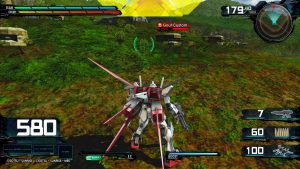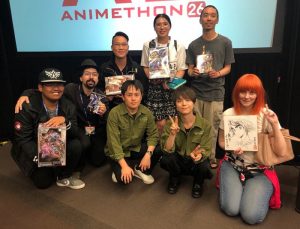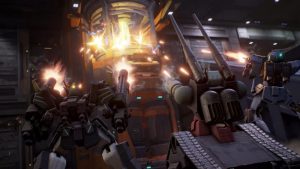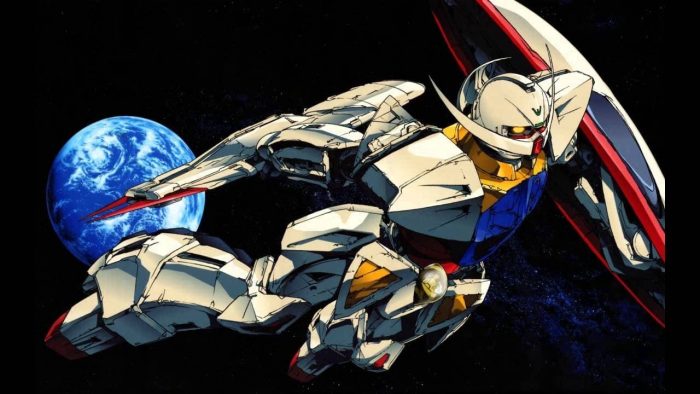
Most people who have watched at least two or three Gundam series will be able to spot the same patterns that exist throughout different major series in this franchise. Be it the iconic Gundam Wing or the tragic Gundam Iron-Blooded Orphan, they all share similar story elements, such as genius pilot, military conflict, political intrigue, and cutting-edge weaponry system, just to name a few. So in a sense, it is just a rehash of the same formula, isn’t it?
Well, not quite. You see, there have been multiple instances where this giant franchise tried to do something different, both in terms of story and visuals. As a matter of fact, the new Gundam: The Witch From Mercury marked the first time ever that this franchise has a female protagonist and a female masked character. Some of those changes were bad, while others turned into staple formats for the series. With that in mind, here are 10 times the Gundam franchise took huge risks.
10. G-Saviour (Life Action Adaptation)
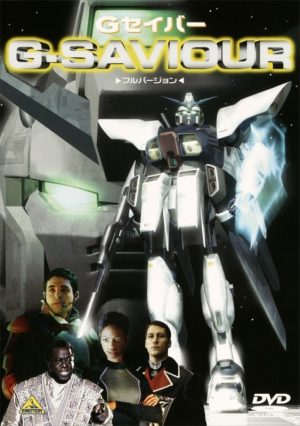
The Mobile Suit Gundam franchise is one of the most popular and beloved anime franchises in the world. However, do you know that there was actually a time when they decided to produce a full live-action Gundam movie?
The year was 1999, and the movie was called G-Saviour. It was made to commemorate the 20th anniversary of the franchise, and it was intended to be a multimedia project, spanning across books, movies, and video games. Unfortunately, the subpar story, bad acting, and janky CGI are some of the main reasons why this movie ended up being ignored and forgotten.
9. Mobile Suit SD Gundam (First SD Gundam)
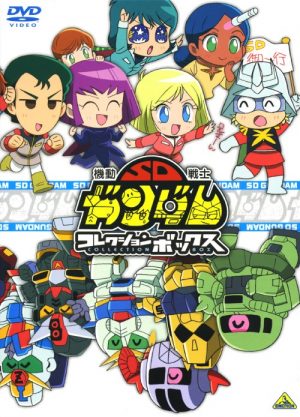
Ever since its inception back in 1979, every major Gundam series has always presented an intricate story with complex character dynamics that are based around thrilling military conflict. As a matter of fact, these are the things that the fans have come to love and expect from this franchise. However, while this is not a problem for adult and teenage audiences, this approach means it can be quite difficult for children to fully understand and enjoy the plot of most major Gundam series.
In order to deal with this issue, this franchise created an utterly different form of Gundam show, which is the SD Gundam. SD stands for “Super Deformed”, and as the name suggests, the Gundams and the other Mobile Suit in this show are highly compressed to the point that it looks like the chibi version of the regular Gundam. On top of that, the story of SD Gundam is also incredibly straightforward and easy to understand. In doing so, the Gundam Franchise managed to successfully expand its target audience to include younger viewers.
8. Super Defender Gundam Force (First Full CG Series)
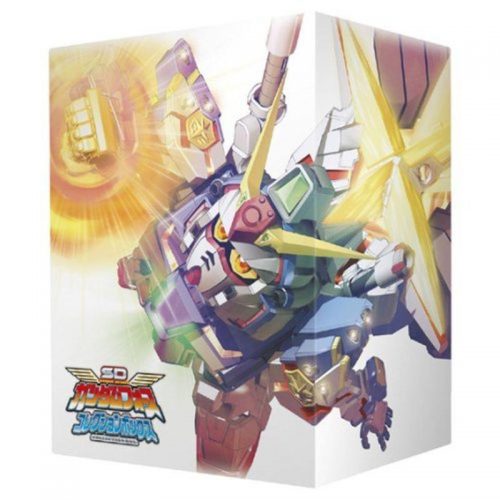
When it comes to animation, there are numerous new tools and inventions created throughout the years. One of which is called Computer-Generated Imagery, better known as CGI. This technology allowed an animator to harness the processing power of a computer in order to make their work faster, easier, and much more complex than ever before.
In the case of the Gundam franchise, the 2003’s Super Defender Gundam Force marked the first time they created a full-CGI show. However, there’s no major Gundam series that uses full CGI after that. That being said, the technology is still widely used in certain parts of the story to this day, particularly when it comes to crowd animations, massive aircrafts, and sometimes even for animating the complex movement of a mobile suit.
7. Mobile Suit Gunpla Builders Beginning G (First Gundam Builder Concept)

As mentioned above, the overwhelming majority of the Gundam series told a serious story with complex and thrilling conflicts at its core. Sure, there is the aforementioned SD Gundam that was created mainly for children, but other than that, most Gundam stories still revolve around young pilots who are thrown into the middle of chaotic, treacherous, and traumatic battles.
However, this franchise tries to do something different in 2010 with a mini-series called Mobile Suit Gunpla Builders Beginning G. In this series, rather than the usual story of people who go to war by piloting giant Mobile Suits in the dystopian future, we see a story that was set in a modern-day instead about teenagers who play around and compete with their Gunpla (Gundam Plastic Model). This series was a flop at the time, but this concept was later on adapted into the Gundam Builders/Divers series and proved to be a massive hit among the fans.
6. Mobile Suit Gundam: Cucuruz Doan's Island (Expanded Remaster)
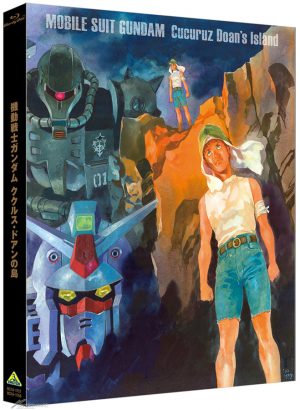
There’s a new Gundam movie released in 2022 called the Mobile Suit Gundam: Cucuruz Doan's Island. Unlike the other movies in this franchise, however, this one is actually a remastered and expanded version of the 15th episode of the 1979’s Mobile Suit Gundam series. This episode was omitted from the US version of the series due to the extremely poor animation quality. This is actually the source of that famous flat-faced Gundam meme.
Yoshikazu Yasuhiko, one of the original creators of the Mobile Suit Gundam, actually liked the concept of the episode, so he decided to remake and expand the story into a full-feature film. This is something that has never been done before in the long history of this franchise, and we may never see such a thing ever again. So be sure to watch this movie if you haven’t already.
5. Turn A Gundam (First Gundam Designed by Foreign Artist)

Despite some inevitable similarities, every single Gundam series actually has its own unique approach to the design of mobile suits. What remains the same, however, is the fact that the Mobile Suit in each series was usually designed by a professional Japanese designer, most of whom are experienced in creating Mecha for other series before. Such as Ippei Gyobu, one of the mechanical designers in Gundam: The Witch From Mercury, who was responsible as a mecha designer for various Gundam series, such as Gundam Build Divers, Gundam G-Reco, etc.
However, that is not the case at all with the 1999’s Turn A Gundam. The designer for the main Gundam, along with several other mecha in the series, is none other than the American Concept Artist, Syd Mead. He is well-known for his design in several popular movies, such as Tron, Blade Runners, and Alien. Syd Mead designed a much sleeker Gundam based on the real-world industrial design concept, combined with his own unique take on the mecha. That is why the main Gundam in Turn A Gundam, the System-∀99 ∀ Gundam, is by far the most exotic-looking Gundam in the entire franchise.
4. Mobile Suit Gundam Compilation Movies (First Compilation Movies)

The original 1979’s Mobile Suit Gundam ran for an extraordinary 43 episodes. No matter how good it might be, such a large number of episodes will likely discourage any potential viewers to watch the entirety of the series. Apparently, Yoshiyuki Tomino, the original creator of the series, thought so as well. So he decided to adapt the series into three compilation movies.
The three compilation movies hit the Japanese theater from 1981 to 1982, and the response was overwhelmingly positive. One of the main reasons was that the fans knew that Tomino used this chance to rework some of the parts that he deemed to be problematic from the original series. That’s why he added, removed, and improved the quality of some scenes.
This process of turning a long series into a couple of compilation feature films has become a staple of the Gundam franchise. After all, they did the same thing to several other subsequent Gundam series, with the latest one being the Gundam Reconguista in G which was turned into five feature films.
3. Mobile Suit Gundam 0080: War in the Pocket (First Side Story Series)
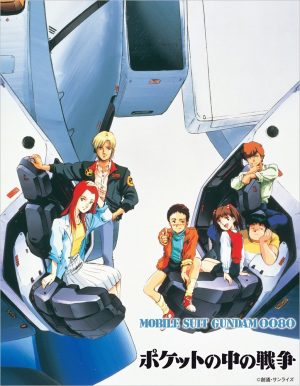
Every new iteration of the major Gundam series has always presented a new story. Even if it is set in the same Universal Century (UC) Timeline, we would still get a story where the main character of the story is actually a key figure in the entire development of the war/global conflict. That is the case with Kamille Bidan of Zeta Gundam, Banagher Links of Gundam Unicorn, and even Hathaway Noa from the new Gundam Hathaway.
However, with the Mobile Suit Gundam 0080: War in the Pocket, the Gundam franchise has officially begun telling side stories of the UC Gundam that featured an entirely new cast of characters, despite the fact that the event in this side story has no effect whatsoever to the main storyline.
The War in the Pocket itself is about a Zeon pilot who unknowingly befriended a Federation soldier. Albeit its modest premise, this six-episode mini-series quickly turned into a cult classic for hardcore Gundam fans. Since then, we get more and more side stories from the UC timeline featuring interesting stories and compelling characters, such as the underrated Gundam: The 08th MS Team, and the fan-favorite Gundam Thunderbolt.
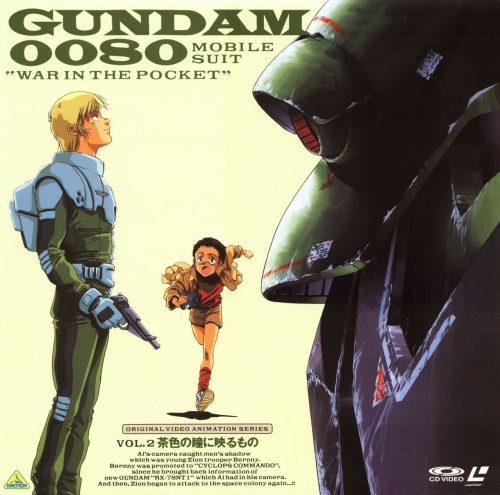
2. Mobile Fighter G Gundam (Wild Gundam Tournament)
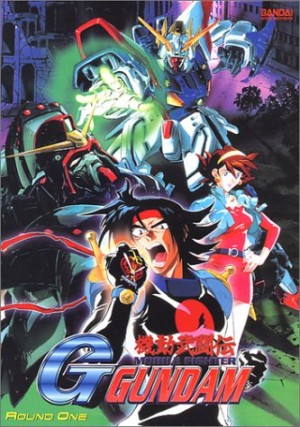
After talking about the experiment on the visuals and the format of the shows, it is time to take a look at some of the times when the Gundam franchise presented us with unique and over-the-top story concepts. Let’s start with the over-the-top first, with the 1994’s Mobile Fighter G Gundam.
Similar to the previous Gundam series, The story of Mobile Fighter G Gundam also revolves around universal conflicts between various humanity factions and colonies. What makes this one different from the others, however, is the fact that those involved in the war decided to send their champion to fight on their behalf, rather than engage in a conventional full-frontal war.
In the other series, we would only get to see a full-blown fight between two Gundams once in a blue moon. In Mobile Fighter G Gundam, on the other hand, there’s an over-the-top duel between Gundams from different factions in every single episode. As a result, we get an absolutely action-packed series featuring tons of zany Gundams with strange powers.
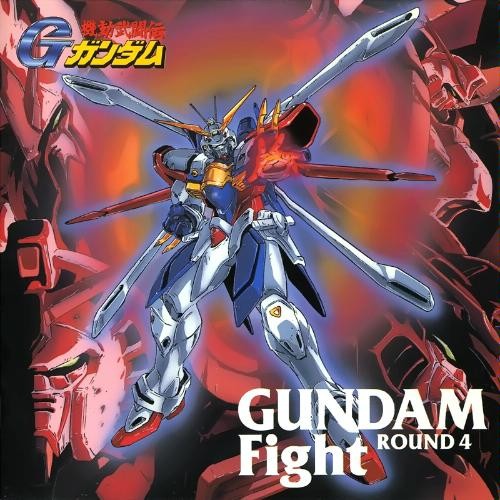
1. Mobile Suit Gundam Age (A Story Spanned Across Three Generations)
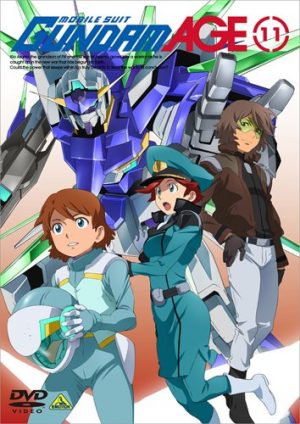
It’s not an exaggeration to say that Mobile Suit Gundam Age is one of the most underrated Gundam series ever made. The reason is simply that this series features one of the most unique storytelling concepts that ever graced this massive franchise, which is telling the story of the same war, through the eyes of three different generations.
The story of Mobile Suit Gundam Age can be divided into four different parts. The first one centers around Flit Asuno, a young mobile suit pilot who witnessed the beginning of what would be known as the One Hundred Years War. The Second one centers around Flit’s son, Asemu Asuno, and the story takes place about 25 years after the end of the first part. The third one centers around Asmu’s son, Kio Asuno, roughly 20 years after Asemu’s story. And finally, the last one features all three of them at the same time.
This kind of structure allowed the series to showcase the severity of war and its effects on the generations that came after. Not only that but three different protagonists also means we get to see three different styles of story and character development in one series. Till this day, there’s no other Gundam series that dares to repeat this kind of storytelling format, nor does it present any other approach that is as creative as this one. Hopefully, we’ll get to see another unique Gundam series like this in the future.
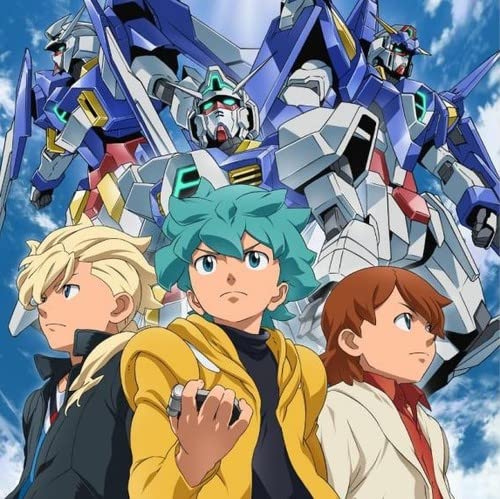
Final Thoughts
It’s easy to judge a new Gundams series as repetitive and a mere shadow of its predecessors if we only see the surface. However, once we bothered to look deeper into the full history of the franchise, patterns of experimentation and the willingness to try something new began to appear. This list is indisputable proof that this old franchise is still willing to take some huge risks to this day, and that is certainly incredibly great news for every Gundam fan out there.
Do you know any other examples of when the Gundam franchise decided to take some huge risks? Let us know in the comment section below.
Recommended Post





